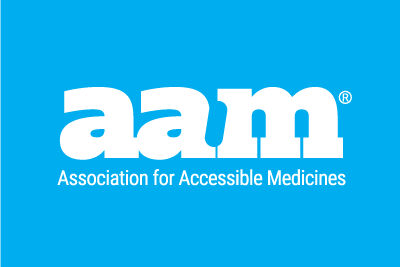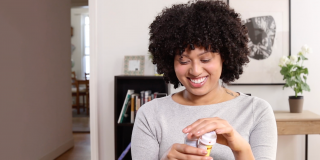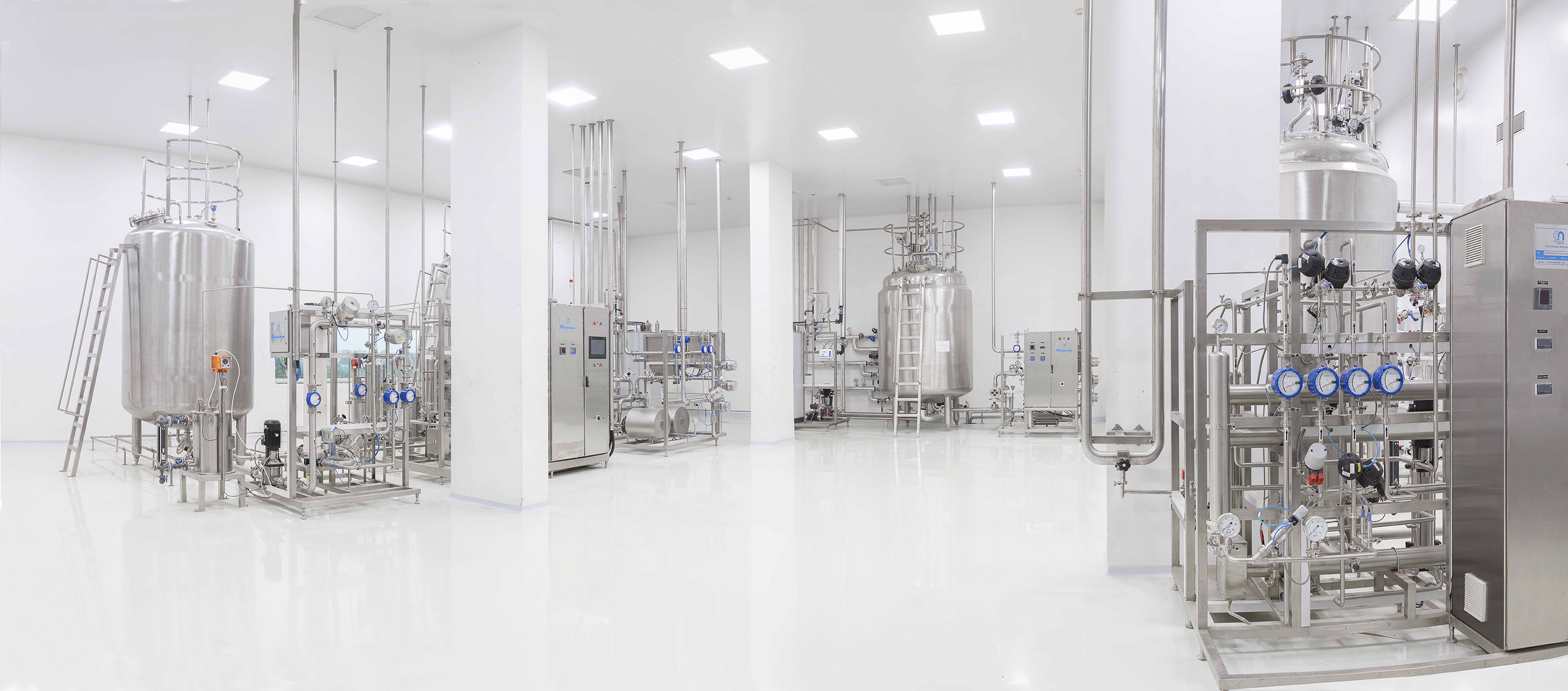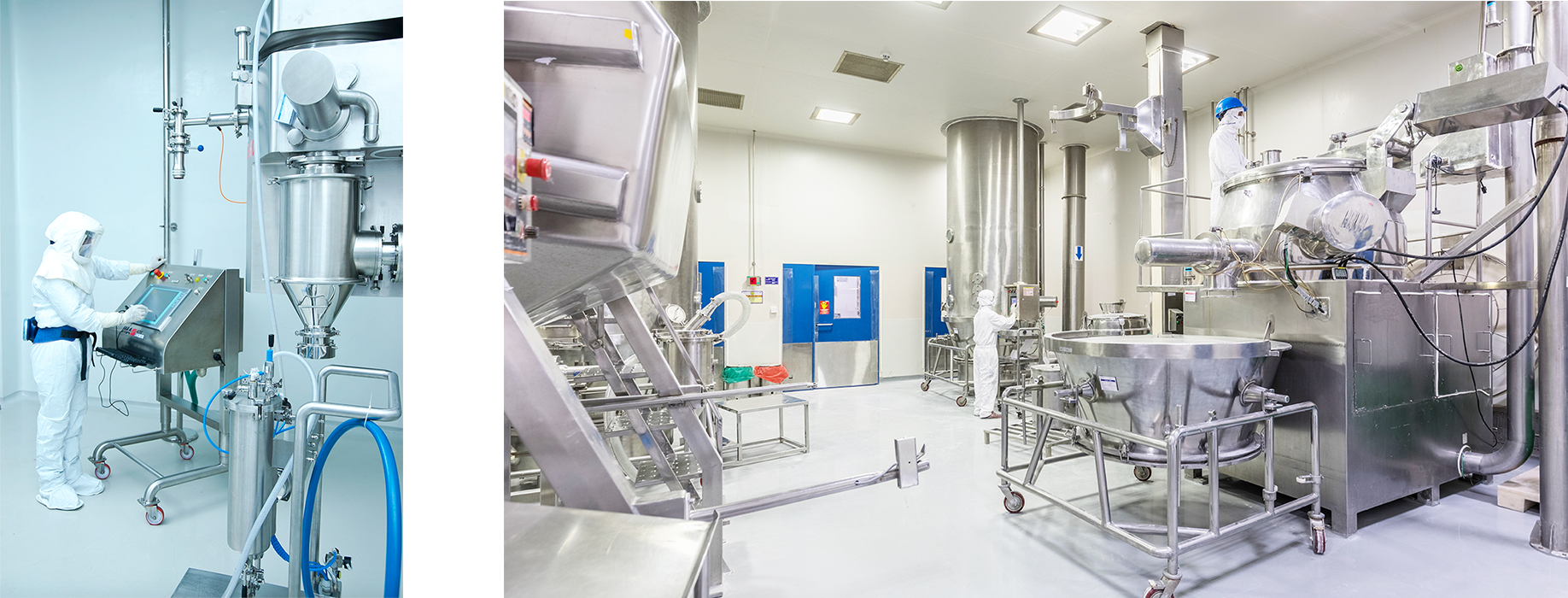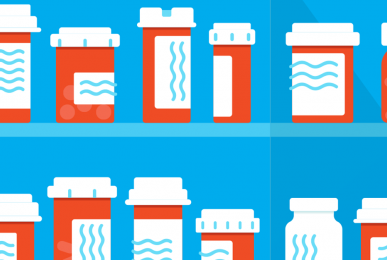From time to time, you may read about the quality of certain brand-name or generic prescription medicines. The Association for Accessible Medicines (AAM), which represents companies that manufacture the majority of the FDA-approved generic medications available to patients in the United States, wants you to know the facts about the safety and effectiveness of the generic prescription drugs in your medicine cabinet. Generic medicines fill 9 out of every 10 prescriptions in this country, and it is the quality, safety, effectiveness and tremendous affordability of these medicines that allow for the access that maintains and improves so many people's health.
You can trust the safety and effectiveness of your generic medicines. It is very important to take your medicines as prescribed by your physician. As the Food and Drug Administration (FDA) the federal agency charged with overseeing the safety, effectiveness and quality of the drug supply tells us, “not taking your medicine as prescribed by a doctor or instructed by a pharmacist could lead to your disease getting worse, hospitalization, even death.”
“Safety of Medicines” is the first principle listed in the AAM Code of Business Ethics: Every member company pledges to “conform to high standards of quality, safety and efficacy as determined by regulatory authorities in each economy in which they operate.” This commitment to quality, safety and efficacy applies regardless of where medicines are manufactured.
Images: Generic drug manufacturing facilities, India
Here are some answers to questions that you might have after hearing about issues related to the quality of generic medicines.
Is the quality different for prescribed vs. over-the-counter (OTC) generics?
Brand and generic medicines can be either prescribed by a physician with a prescription or purchased over the counter without a prescription. FDA oversees the manufacturing quality of all these medicines to ensure safety and efficacy. For brand and generic medicines that require a prescription from a physician, the manufacturing industry pays fees, in the form of user fees, to supplement FDA's resources from Congress to timely review, inspect and approve drug products.
Is there a problem with generic drug contamination?
According to the Food and Drug Administration (FDA): “The U.S. drug supply chain remains one of the safest in the world.” Patients in the United States can be confident that the medicines they take are safe and effective. The process by which manufacturers and FDA assure that generic drugs all meet the same high-quality standards regardless of where they’re manufactured is working for patients.
How does FDA monitor the quality of drugs?
FDA’s Office of Pharmaceutical Quality (OPQ) employs a staff of more than 1,300 responsible for regulating the quality of human drugs marketed in the United States. To ensure the American public has access to safe, effective, quality drugs, OPQ conducts assessments, inspections, research and surveillance of pharmaceutical manufacturing facilities. The agency’s commitment to quality is rigorous:
Quality is the underpinning of everything FDA does to help assure consumers have access to quality medicines, regardless of whether the medications are over-the-counter, prescription, innovator, or generic. Without quality, no one can be confident that a drug is safe and effective.
How can I be sure FDA has approved my generic prescription medications?
Under federal law, prescription drugs in the U.S. must be shown to be both safe and effective prior to marketing. Generic drugs are approved if, among other things, they are shown to be chemically equivalent to the brand-name drug. Some proposals have been made recently in support of drug importation, but the Partnership for Safe Medicines warns, “importing non-FDA-approved medications outside the licensed and secure supply chain endangers patients.”
Where are my medicines made?
Brand-name and generic medicines alike are manufactured in countries the world over, including -- but not limited to -- Australia, Canada, China, India, France, Germany, Japan, Malta, Singapore, Sweden, the United Kingdom and the United States.
PharmacyChecker.com, a company that credentials international online pharmacies, recently analyzed the labels and packaging of brand-name medicines and found that 70% of top-selling brand-name drugs sold in U.S. pharmacies are manufactured outside the country.
There has been much discussion of onshoring more U.S. pharmaceutical manufacturing, and the generic industry is supportive of expanding its already robust presence in this country.
How does FDA ensure the quality of generic drugs manufactured in India and China for United States patients?
Since brand-name and generic drug production occurs in facilities in the United States (more than 60 billion doses of generic medicines a year are made in America) as well as around the world, the FDA conducts inspections wherever drugs are made.
Under the newest user fee agreement between the government and the generic industry, a “risk-based” approach has been implemented and now foreign facilities are inspected with greater frequency. Generic drug companies pay FDA approximately half-a-billion dollars per year in user fees, which have helped FDA provide for these inspections (among other things). These which include pre-approval inspections and unannounced surveillance inspections. AAM's member companies strive to have their facilities “audit ready” 365 days a year.
What’s the difference between generic medicines and “fake drugs”?
Unlike FDA-approved generic medicines, fake drugs are potentially dangerous products that could increase resistance to pathogens and cause further illness, disability or even death. Counterfeit drugs are a real problem in many parts of the world, and we need ever-greater vigilance to stop their spread. Here in the United States, AAM supported congressional consideration and presidential signing of the Drug Quality and Security Act of 2013, which protects the U.S. public from fake and contaminated medicines. Read more about this issue from our partner organization Fight the Fakes.
Is the quality and effectiveness of generics less than for brand-name drugs?
No. FDA’s safety and effectiveness standards are the same for brand-name and generic drugs.
How would I be alerted if there is a question about my brand or generic medicine?
If, for any reason, the manufacturer and/or the FDA determines a medicine should be recalled, your pharmacist will contact you. All medicines, whether brand or generic, can be traced from the manufacturer, through the supply chain and the pharmacist to you, the patient. Trust your pharmacist or physician to reach out in a timely manner by phone, letter or other form of communication and begin working with you to determine alternative prescription options.
Is the generic industry actively offshoring production of its medicines?
In nearly 150 manufacturing sites across the nation, more than 52,000 workers produce over 60 billion doses every year. The generics and biosimilars industry is a strong and expanding presence in the United States.
AAM Take With Confidence Social/Digital Toolkit:
Resources:
- FDA Generic Drug Facts
- FDA Review
- Search FDA List of Brand and Generic Medicine Recalls
- US Pharmacopeia
- Fight the Fakes
- Partnership for Safe Medicines
- Brand-Drug Safety
